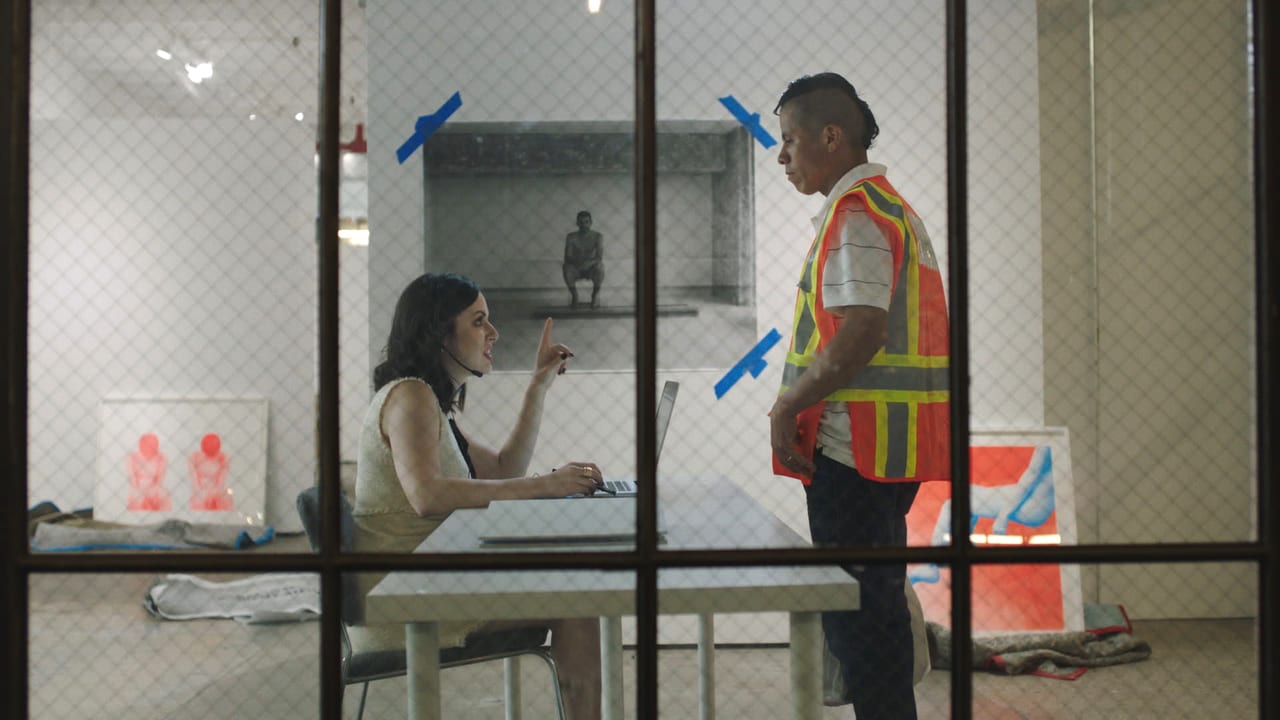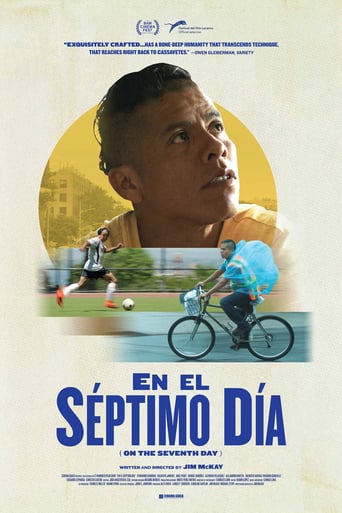

For many, playing a game of soccer on a Sunday afternoon is a pleasant way to spend time with friends before the next work week begins. For a group of undocumented workers living in the Sunset Park neighborhood of Brooklyn, however, a Sunday soccer game is more than that. It is an expression of community, of bonding, and of mutual support against the always-threatening disruption of their lives. Set in the summer of 2016, Jim McKay's ("The Good Fight" TV series) En el Séptimo Dia (On the Seventh Day) is a powerful look at the lives of eight Mexican immigrants who live together in a one room flat and who work six days a week as delivery men, construction workers, janitors, dishwashers, and street vendors, the type of people who rarely garner much attention in mainstream films.The film, however, is without any overt political agenda. McKay does not portray the characters as victims, but as human beings who struggle to make a living and who, like everyone else, have moments of joy and sadness. Though the director is a white man in charge of a cast of non-professional Hispanic actors, José (Fernando Cardona), Artemio (Genoel Ramírez), Elmer (Gilberto Jimenez) and Jesús (Abel Perez) to name a few, his empathetic ability to penetrate and understand the lives of the people he works with makes the film essentially color blind. Using English and Spanish subtitles (sometimes both at the same time), the focus is on one week in the life of the soccer team "Puebla," named after the Mexican city most of the members hail from.After winning the semis, the team has one week to prepare for the finals the following Sunday. Complications arise almost immediately, however, when Artemio, hurts his knee during the game and has to be replaced. Also, later in the week, their star player, the intense, poker-faced José, a delivery man for a Mexican restaurant in Brooklyn's Carroll Gardens, reluctantly tells the team that he will be unable to play. The restaurant he works for will be hosting an important party on Sunday and Steve (Christopher Gabriel Núñez), his straightforward but mostly uncaring boss, tells José that he expects him to show up for work. "All hands on deck," the skipper tells his subordinate crew.Much of En el Séptimo Dia takes place in the South Brooklyn neighborhood built by immigrants and which now contains a diverse population of Puerto Ricans, Mexicans and other Hispanics, as well as Chinese and Indians. It is lovingly captured by cinematographer Charles Libin ("Remote Control") who provides a look at the colorful streets against a shimmering backdrop of Manhattan's tall towers, the New York Harbor, and the Statue of Liberty. We see many shots of José speeding around the city often in a heavy rainstorm, dodging traffic, taking shortcuts, getting into conversations with people in the neighborhood and, above all, protecting his bike, his only means of livelihood.As José works his way daily through his confined environment, he has to put up with surly business people, such as one who neglects to show up to receive his delivery, then later complains that the food is cold. Afraid of losing his job but not wanting to disappoint his team, José has much to think about during the week. With a pregnant wife in Mexico whose dream is to come to the States to deliver her baby (very unlikely today), an upcoming vacation, and a vague promise by his boss of a promotion and help getting his papers, José has to consider the practicalities as well as his loyalty to the team.As the days progress leading up to the big game, the tension builds until the game itself turns the film from a slice of life tale into a galvanizing sports movie. When a Puebla's fan comes up with a borderline crazy idea, a possibility opens that would allow José to play in the finals and still keep his job. Though the answer as to whether or not it can work is "blowin' in the wind," a lonely mariachi singer laying down his weary tune on a fast-emptying city street tells us all we need to know about the promise and the danger.
... View MoreCharming film that does an excellent job of putting you in the shoes of others. Simple plot, but the cinematography and excellent use of non-actors made it all work.
... View MoreThis movie, filmed entirely on location in Brooklyn, N.Y., depicts the lives of people "we" -- we being middle- and upper-class U.S. citizens -- see everyday and who are nonetheless all but invisible to us. Both its humor and its politics are gently stated. It's reminiscent of Ramin Bahrani's series of portrayals of working-class life (Chop Shop, Man Push Cart, Goodbye Solo). My only quibble is with its distribution: In New York City you can currently see it at BAM Rose and one other arthouse, but it really deserves to be screened at a theater in the neighborhood where it was filmed -- or better yet shown outdoors on a summer night in Sunset Park!
... View More